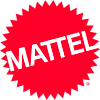
Mattel, Inc. is an American multinational toy manufacturing and entertainment company founded in Los Angeles by Harold Matson and the husband-and-wife duo of Ruth and Elliot Handler in January 1945 and headquartered in El Segundo, California. Mattel has a presence in 35 countries and territories; its products are sold in more than 150 countries.

Western Publishing, also known as Western Printing and Lithographing Company, was an American company founded in 1907 in Racine, Wisconsin, best known for publishing the Little Golden Books. Its Golden Books Family Entertainment division also produced children's books and family-related entertainment products. The company had editorial offices in New York City and Los Angeles, California. Western Publishing became Golden Books Family Entertainment in 1996. Little Golden Books remains as an imprint of Penguin Random House. Golden Guides and Golden Field Guides are published by St. Martin's Press.

HIT Entertainment Limited was a British-American entertainment company founded in 1982 as Henson International Television, the international distribution arm of The Jim Henson Company, by Jim Henson, Peter Orton, and Sophie Turner Laing. Orton alone took over the company in 1989 after learning Henson intended to sell the company to The Walt Disney Company. HIT owned and distributed children's television series such as Thomas & Friends, Fireman Sam, Bob the Builder, Pingu, Barney & Friends, and Angelina Ballerina.

Pixter was among the first portable handheld touch screen drawing toys for children invented by Rehco, LLC and marketed by Fisher Price from 2000 through 2007. Pixter was pre-programmed with fun content and repeatable play. Pixter also could accept cartridge-based games and other activities. Pixter was originally marketed successfully with a black-and-white display but later was upgraded to a color display.
Polly Pocket is a toy line of dolls and accessories first founded and designed by Chris Wiggs in 1983 and licensed by Bluebird Toys from 1989 until both entities/properties were acquired by Mattel in 1998.
Tyco Toys was an American toy manufacturer. It was acquired by Mattel in 1997, becoming one of its brands.
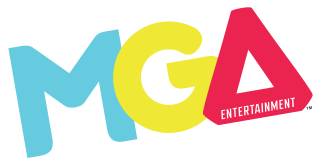
MGA Entertainment Inc. is a manufacturer of children's toys and entertainment products founded in 1979. Its products include Bratz, Num Noms, Lalaloopsy, and Rainbow High, as well as toys targeted at boys such as Scan2Go. MGA also owns Little Tikes and animation studio MGA Studios.

Ideal Toy Company was an American toy company founded by Morris Michtom and his wife, Rose. During the post–World War II baby boom era, Ideal became the largest doll-making company in the United States. Their most popular dolls included Betsy Wetsy, Toni, Saucy Walker, Shirley Temple, Miss Revlon, Patti Playpal, Tammy, Thumbelina, Tiny Thumbelina, and Crissy. The company is also known for selling the Rubik's Cube.
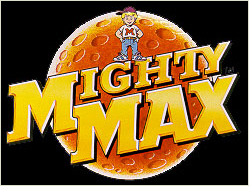
Mighty Max was a series of toys that were manufactured by Bluebird Toys PLC in the UK in 1992. The toys were similar to the earlier Polly Pocket toyline, but these toys were marketed primarily towards young boys. In Canada and the United States, they were distributed by Irwin Toy Limited and Mattel Inc. respectively. The original toyline consisted mainly of "Doom Zones" and "Horror Heads". "Doom Zones" were small playsets with a horror theme and featured miniature figurines of menacing creatures and the hero Max, a young boy with blond hair, jeans, a white t-shirt with a red "M" on it, and a baseball cap which also always had an "M" on it. The "Horror Heads" were smaller-sized playsets, also shaped like the heads of creatures and contained miniature figures. It was later adapted into a TV series, as well as a tie-in video game The Adventures of Mighty Max produced by Ocean Software for the Super NES and Mega Drive/Genesis.

Irwin Toy Limited was a Canadian distributor and manufacturer of toys. It was Canada's oldest toy company and remained independent and family owned until 2001.

Sindy is a British fashion doll created by Pedigree Dolls & Toys in 1963. A rival to Barbie, Sindy's look and range of fashions and accessories made her the best-selling toy in the United Kingdom in 1968 and 1970. After Marx Toys' unsuccessful attempt to introduce Sindy in the United States in the late 1970s, Hasbro bought the rights to Sindy and remodelled the doll to look more American. As a result, the doll's popularity declined; in addition, Barbie manufacturer Mattel filed a lawsuit for copyright infringement, which was settled when Hasbro agreed to remodel Sindy's face. During the 1990s, Barbie's share of the doll market continued to grow while Sindy's diminished, which led to Sindy being delisted from major retailers in 1997. Hasbro returned the doll's licence to Pedigree, and the doll was relaunched in 1999, manufactured by Vivid Imaginations. Sindy's 40th anniversary in 2003 saw a new manufacturer, New Moons, and another relaunch and redesign. There were further relaunches in 2016 by Tesco and in 2021 by Kid Kreations. There is a 60th anniversary Sindy doll which was launched at the end of 2023 to celebrate 60 years of Sindy.

Mega Brands Inc. is a Canadian children's toy company that is currently a wholly owned subsidiary of Mattel. Mega Bloks, a line of construction set toys, is its most popular product. Its other brands include Mega Construx, Mega Puzzles, and Board Dudes. The company distributes a wide range of construction toys, puzzles, and craft-based products.
Sir Torquil Patrick Alexander Norman, is a British businessman, aircraft enthusiast, and arts philanthropist.
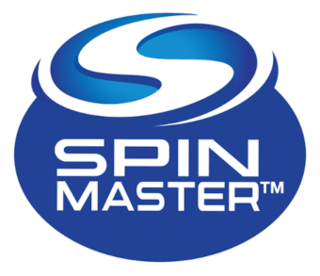
Spin Master Corp., formerly known as Spin Master Toys, is a Canadian multinational toy and entertainment company. Spin Master employs over 1,600 people globally with offices in Australia, Canada, China, France, Germany, Hong Kong, India, Italy, Japan, Mexico, the Netherlands, Poland, Slovakia, Sweden, the United Kingdom, the United States, and Vietnam.

Vivid Imaginations is a British toy manufacturer, distributor and wholesale company, based in Guildford, Surrey.
Fuhu was a company that made the Nabi series of tablet computers. The company filed for bankruptcy, eventually leading to the company's closure on January 9, 2016. Mattel later acquired and continued the brand with the Nabi SE for a few years until the Nabi line was quietly discontinued in 2019.

Mattel Films is the film production division of Mattel originally formed on October 16, 2013, as Mattel Playground Productions as part of Mattel Global Brands, a unified media structural and strategy unit.
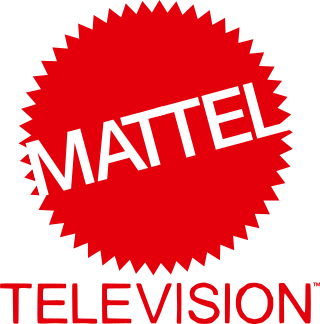
Mattel Television Studios is the television production division of American toy and entertainment company Mattel, originally founded on March 31, 2016 as the successor to Mattel's earlier entertainment division, Mattel Playground Productions, under the name Mattel Creations.















